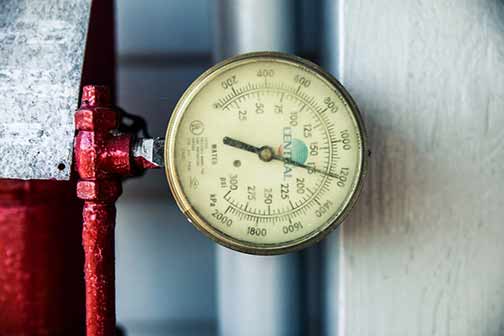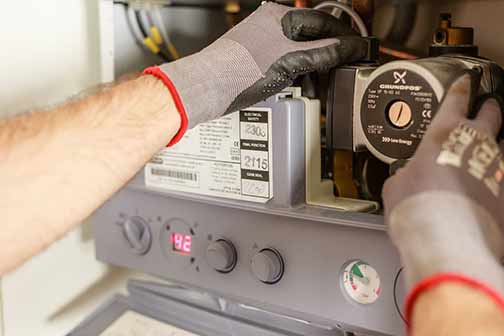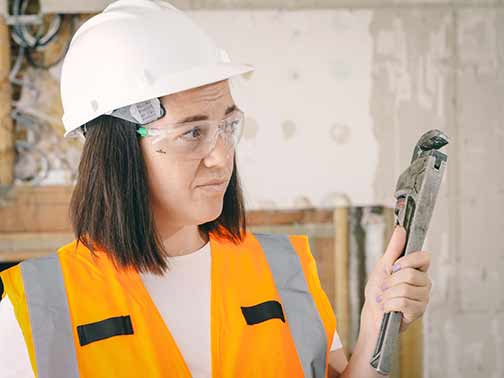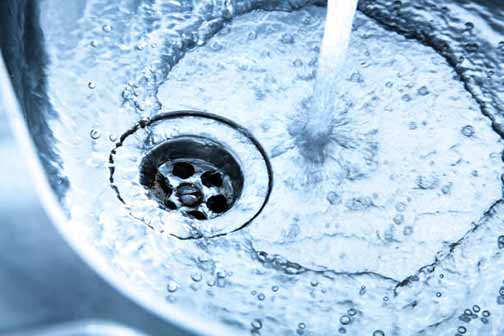
There is no shortage of things to do when moving into a new home. Among these, plumbing often takes a back seat. For new homeowners, one commonly overlooked issue is high water pressure, which might not seem like an immediate concern but can lead to serious and costly problems if ignored. Understanding the implications of this underestimated problem, recognizing its signs, and knowing how to manage it are essential steps in maintaining a safe and functional home.
What Is Water Pressure?
Water pressure is the force that drives water through the pipes in your home. This force is measured in pounds per square inch (psi) and determines how quickly water flows from your faucets and fixtures. For most residential properties, an ideal water pressure level is between 40 and 60 psi. Anything exceeding 80 psi is considered excessive and can strain your plumbing system, appliances, and fixtures.
High-velocity water might sound like a good thing at first. After all, who doesn’t want a powerful shower? However, the long-term effects can be damaging. It’s a common misconception that strong water flow equates to better plumbing services. In reality, consistently high pressure can lead to leaks, pipe bursts, and increased water waste, among other issues.
The Importance of Professional Inspections
A plumbing inspection should be a key part of the home-buying process. Unfortunately, many new homeowners skip this step, only to discover problems like high water pressure after moving in. A professional plumber can measure your water pressure, identify potential issues, and recommend necessary solutions. However, plumbing inspections are best performed during the most inconvenient times.
Coordinating repairs or upgrades can be more challenging in situations like home renovation projects or relocations. Keeping multiple pitfalls in mind can prove challenging for everyday people just trying to get through a long and complicated moving process. Therefore, the support of Best US Moving can be invaluable when it comes to sharing the responsibilities of relocation. Professionals who can safely relocate your belongings while you focus on resolving plumbing or other maintenance issues could prove invaluable in many ways. Not the least of which is being able to avoid plumbing emergencies further down the line.
Learn to Recognize the Warning Signs Yourself
High water pressure often goes unnoticed until it causes visible problems. However, there are several indicators new homeowners can look out for.
- Noisy or banging pipes, a condition known as a water hammer, is a clear sign that water is moving too forcefully through your plumbing.
- Dripping faucets that won’t stop, even after being tightly closed, can also indicate excessive pressure.
- Appliances such as dishwashers, washing machines, and refrigerators with water lines may wear out or break down prematurely under the strain of high water pressure.
- Another clue is an unusually high water bill. If your water usage seems consistent but your bill keeps climbing, excessive pressure may be causing water to flow unnecessarily through your pipes.
Catching these warning signs early can save you from dealing with more significant and expensive problems down the line.

Professional inspection is always a smart choice for new homeowners.
How to Address the Issue Properly
If you suspect your home has high water pressure, the first step is to test it. You can purchase an inexpensive pressure gauge at a hardware store and attach it to an outdoor faucet. If the reading exceeds 80 psi, it’s time to take action.
Installing a pressure regulator is the most effective solution. However, in some cases, additional steps may be necessary, such as replacing damaged pipes or upgrading to water-efficient fixtures. Working with a licensed plumber ensures that the problem is resolved correctly and that your home’s plumbing system remains in good shape.
Know The Risks of High-velocity Water
The risks associated with high water pressure are not limited to plumbing repairs. Over time, the constant force of water moving through your pipes can lead to leaks, which can damage walls, floors, and ceilings. Even small leaks can encourage mold and mildew growth, creating health risks for your household.
Appliances connected to your plumbing system are also at risk. Water heaters, washing machines, and dishwashers are designed to handle a certain level of water pressure. To make the process easier, ask local movers for assistance with identifying the potential risks. Excessive force can reduce their lifespan, leading to frequent repairs or costly replacements. Moreover, fixtures such as faucets and showerheads may develop cracks or lose functionality when subjected to constant strain.
High Water Pressure and Water Conservation
Pressurized water leads to waste, apart from putting your plumbing system at risk. When water flows too quickly, more is used than necessary. This will increase your monthly water bill and strain local resources. The issue is particularly significant in areas prone to drought or water shortages.
By addressing high water pressure, you’re not just protecting your home; you’re also contributing to environmental conservation. Installing water-saving fixtures and keeping your pressure within the recommended range are small steps that can make a big difference in your water consumption.
Pressure Regulators: Your Home’s First Line of Defense
One of the most effective ways to protect your home from high water pressure is by installing a pressure regulator. This device, also known as a pressure-reducing valve (PRV), is typically installed near your home’s main water shut-off valve. It works by reducing the pressure of water entering your home to a safe and consistent level.
If your new home already has a pressure regulator, it’s still a good idea to have it inspected to ensure it’s functioning properly. These devices can wear out over time, especially in older homes. If you don’t have one, installing a pressure regulator is a relatively simple process that can save you significant money and stress in the long run.

If you suspect your home has high water pressure, the first step is to test it.
Schedule Regular Plumbing Inspections
For many new homeowners, the process of moving is already overwhelming. Adding plumbing inspections or repairs to the list of tasks can feel daunting. However, planning your move carefully can make a big difference. Your first plumbing inspection should reveal any pressing issues and you can focus on fixing them.
However, it’s also important to keep in mind that even if your plumbing doesn’t show any warning signs, you should still pay attention to any alarming changes. Get in touch with professional plumbers as soon notice them. Additionally, it would be smart to schedule regular inspections in your home, just in case.
Routine Maintenance to Prevent Future Issues
Once you’ve addressed high water pressure, ongoing maintenance is crucial. Periodically check your pressure regulator and have your plumbing system inspected by a professional. Keep an eye out for signs of wear and tear, such as leaks or noisy pipes, and address them promptly.
Investing in regular maintenance extends the lifespan of your plumbing system and reduces the risks of significant water waste. When your home’s water pressure is under control, you can enjoy your new space without worrying about unexpected plumbing emergencies.
Conclusion: The Importance of Plumbing for New Homeowners
High water pressure may not be the first thing on the minds of new homeowners. However, from damaging pipes and appliances to wasting water and driving up utility bills, the risks of ignoring this issue are significant. By taking proactive steps, you can protect your home and ensure it remains a safe and comfortable place to live. Whether you’re just settling in or still preparing for your move, prioritizing plumbing maintenance will save you time, money, and stress in the long run.

